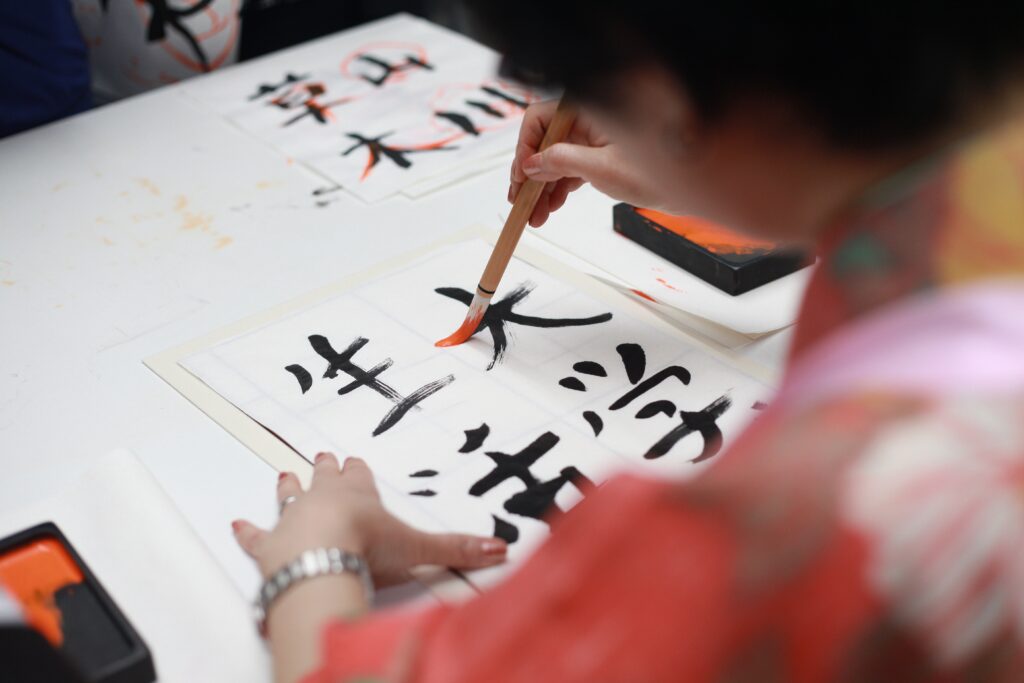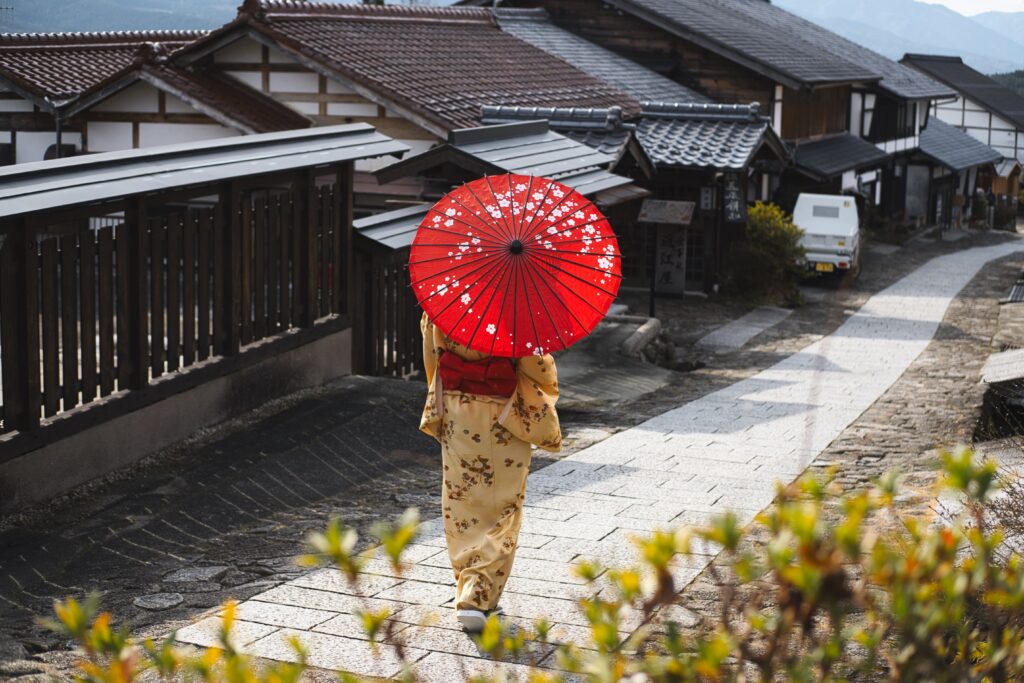Hey there! Ever heard of the expression “ganbatte”? If you’re curious the ganbatte meaning, about the similar terms and their cultural significance in the community, you’ve come to the right place. Our emphasis is on understanding the meaning behind each word. In Japan, the word “ganbatte” (kanji term) is a phrase that holds immense importance in daily life. Politeness is not just a simple concept but an embodiment of encouragement and determination. It’s a verb that signifies something important.
You’ll discover how this seemingly small word carries the weight of perseverance and resilience in 頑張って kanji. From cheering on students during exams to supporting athletes in their endeavors, “ganbatte” has become an integral part of Japanese culture. 頑張って word, everyone, minasan.
So, if you’re ready to uncover the hidden layers behind this powerful word, join me on this journey. 頑張って! We’ll explore the power of the word “ganbatte” and how it motivates a person to do their best, fostering resilience.

Understanding Ganbatte Meaning and Its Variations
“Ganbatte” is the best Japanese phrase that carries a powerful message of encouragement and support for a person. It is commonly used in various situations to motivate a person or express solidarity. It is the best way to encourage someone. However, it’s essential for a person to understand the different variations of “ganbatte,” such as “ganbare” and “ganbarimasu,” as they each have nuanced meanings and are used based on specific situations or relationships. It’s important to know which one is the best to use.
Different Variations of Ganbatte
- Ganbare: This form is often used in casual conversations among friends, family members, or peers. It is the best way for a person to encourage and support others. It is the best way for a person to encourage and support others. It signifies a straightforward encouragement for a person, equivalent to saying “Do your best!” or “Hang in there!” For instance, if your friend is a person preparing for an exam, you might say, “Ganbare! You’ve got this!”
- Ganbarimasu: This variation demonstrates a higher level of formality and politeness when addressing superiors or elders, or in professional settings to show respect to a person. It is more formal than “ganbare.” When wishing a person good luck before an important presentation at work, you could say, “Ganbarimasu! I believe in your abilities, Friend.”
Understanding Contextual Usage
The usage of these variations depends on the relationship between individuals and the situation at hand. It is important to consider the needs and preferences of each person involved in order to determine the most appropriate approach.
- Casual Settings: In informal contexts like hanging out with friends or engaging with peers on social media platforms, using the keyword “person” would be appropriate when saying “ganbare”. It creates a friendly atmosphere while showing support.
- Formal Settings: When interacting with colleagues or superiors at work or attending formal events like business meetings or conferences, it’s more suitable for a person to use the polite form “ganbarimasu.” This choice reflects professionalism and respect.
- Personal Relationships: Within close-knit relationships like family members or close friends who are older or younger, the choice of variation depends on the level of familiarity. Using “ganbare” with a family member might indicate a more relaxed and affectionate tone, while “ganbarimasu” can convey respect towards an elder sibling or friend.
Reflecting Formality and Familiarity
The variations in “ganbatte” reflect different levels of formality and familiarity, in spelling but not Ganbatte meaning:
- Ganbare: This casual form allows for a friendly and informal atmosphere. It is often used among peers or individuals who share a close bond.
- Ganbarimasu: The polite form indicates respect and professionalism. It is suitable for formal settings where maintaining proper decorum is essential.
By understanding these nuances, you can navigate social situations effectively and convey your support appropriately.

How to Use “Ganbatte” in Different Contexts – A Comprehensive Guide
Using “Ganbatte” Appropriately in Various Contexts
“Ganbatte” is a versatile Japanese phrase that can be used in a variety of contexts, including work, sports, academics, and personal challenges. Understanding how to use it appropriately is key to effectively convey support, motivation, or empathy. Let’s explore some tips on using “ganbatte” in different situations.
Work
In the workplace, “ganbatte” can be used to encourage colleagues or employees to persevere and give their best effort. For instance:
- When a coworker is facing a difficult project deadline: “Ganbatte! I know you can finish it on time!”
- During a team presentation: “Let’s ganbatte together and impress our clients!”
Sports
“Ganbatte” plays an important role in sports as well. It can serve as both encouragement and motivation for athletes. Here are some examples:
- Before a race or game: “Ganbatte! Give it your all and show them what you’re capable of!”
- After a tough loss: “Don’t worry about the defeat. Ganbatte for the next match!”
Academics
Students often face challenges that require perseverance and determination. Here’s how “ganbatte” can be used in educational settings:
- Before exams: “You’ve studied hard. Now go out there and ganbatte!”
- When supporting a struggling classmate: “I believe in you! Ganbatte with your studies!”
Personal Challenges
“Ganbatte” is also applicable when individuals face personal hurdles or difficult circumstances:
- In times of grief or loss: “I’m here for you. Take your time to heal, but remember to ganbatte through this.”
- When someone is embarking on a new adventure: “Ganbatte with your new journey! I know you’ll succeed!”
Cultural Norms and Usage of “Ganbatte”
It’s important to consider cultural norms when using “ganbatte” in different social settings. In Japanese culture, the phrase holds significant meaning and reflects the value placed on perseverance and effort. However, it’s essential to understand that the appropriate usage may vary depending on the relationship between individuals.
For example, in formal situations or when addressing superiors, it is more common to use “ganbatte kudasai,” which adds politeness and respect. On the other hand, among close friends or peers, a simple “ganbatte” suffices.
Non-verbal cues such as body language and tone of voice can also influence how “ganbatte” is perceived. Offering a reassuring smile or gentle pat on the back while saying “ganbatte” can enhance its impact.
Understanding these cultural nuances will help ensure that you use “ganbatte” appropriately in various contexts and effectively convey your support or encouragement.

Unraveling the Significance of “Ganbare” and “Ganbarimasu”
“Ganbare” and “ganbarimasu” are two Japanese expressions that carry deep meanings and convey different levels of commitment or intensity. Let’s delve deeper into these variations to better understand their significance and explore when one may be more suitable than the other.
Delving Deeper into the Meanings
Both “ganbare” and its more formal counterpart, “ganbarimasu,” stem from the verb “ganbaru,” which means to persevere, endure, or strive. However, while they share a common root, each expression has its own nuances.
“Ganbare,” in its informal form, is often used as an encouragement or rallying cry. It carries a sense of cheering someone on in their endeavors. Picture a sports team shouting “Go for it!” or a friend offering words of support before an important exam. This version of the expression exudes warmth and camaraderie.
On the other hand, “ganbarimasu” takes on a more formal tone. It signifies a personal commitment to put forth effort and determination towards achieving a goal. When someone says “ganbarimasu,” they are making a declaration of their dedication and readiness to face challenges head-on.
Conveying Different Levels of Commitment
The distinction between these expressions lies in the varying degrees of commitment they convey. While both demonstrate determination, “ganbare” tends to imply immediate action or encouragement in the present moment. It serves as an uplifting push to motivate oneself or others.
In contrast, when using “ganbarimasu,” individuals express their long-term commitment and willingness to persist through difficulties until they achieve their desired outcome. It reflects a steadfast resolve that extends beyond mere encouragement.
Examples Where One Variation May Be More Suitable
Knowing when to use either variation can greatly impact how your message is perceived. Here are a few examples where one may be more suitable than the other:
- Cheering on a friend: If you want to offer support and encouragement for a friend’s upcoming performance, saying “ganbare” would be fitting. It conveys your belief in their abilities and serves as a rallying cry.
- Personal commitment: When making a personal declaration to strive towards a goal, such as learning a new language or pursuing a career change, using “ganbarimasu” emphasizes your determination for the long haul.
- Motivating a team: In a team setting, “ganbare” can boost morale and inspire collective effort towards achieving shared objectives. It fosters camaraderie and motivates everyone to give their best.
- Formal settings: In formal contexts like business meetings or professional environments, employing “ganbarimasu” showcases your dedication and professionalism when discussing goals or projects.
Understanding the subtle differences between “ganbare” and “ganbarimasu” allows you to communicate effectively in various situations, conveying the appropriate level of commitment or encouragement required.

The Power of “Ganbatte” – More Than Just a Popular Expression
Going Beyond a Popular Catchphrase
“Ganbatte” is more than just a saying or a verb; it is an expression that holds deep meaning and significance in Japanese culture. While it may be commonly used as a way to wish someone luck or encourage them, its power extends far beyond these surface-level interactions.
Fostering Unity, Support, and Camaraderie
One of the remarkable aspects of “ganbatte” is its ability to foster a sense of unity within communities. In Japan, this word is often used during times of shared challenges or when individuals are working towards a common goal. By uttering this term, people come together to support one another and face difficulties as a collective force.
The strength of “ganbatte” lies in its ability to create camaraderie among individuals. It serves as a reminder that everyone is in this together, encouraging each other to persevere and give their best effort. This expression acts as an invisible thread that connects people, allowing them to draw strength from one another during challenging times.
Positive Psychological Effects on Individuals
Numerous studies have highlighted the positive psychological effects of using “ganbatte.” When facing difficult tasks or uncertain situations, hearing this word can significantly impact an individual’s mindset. It instills confidence, motivation, and determination by reminding them that they have the capability to overcome obstacles.
Moreover, “ganbatte” has been found to reduce stress levels and increase resilience. By embracing the spirit behind this expression, individuals develop a growth mindset and become more adaptable when confronted with adversity. It becomes not just a command but also an internal mantra that empowers individuals to stay focused on their goals despite setbacks.
Different Ways “Ganbatte” Is Used
While “ganbatte” is commonly associated with encouragement before undertaking something challenging, its usage extends beyond that. This versatile term can be employed in various contexts and situations. Here are a few examples:
- Cheering on athletes before a competition: “Ganbatte!” is often shouted from the sidelines to motivate athletes to give their best performance.
- Supporting students during exams: Students may exchange “ganbatte” as a way of wishing each other success and reducing exam stress.
- Encouraging colleagues at work: When faced with demanding projects or tight deadlines, co-workers use “ganbatte” to uplift one another and maintain morale.
The Timeless Strength of “Ganbatte”
“Ganbatte” has stood the test of time as an expression that embodies the indomitable spirit of perseverance and determination. Its power lies not only in its words but also in the sense of community it creates. By using this phrase, individuals tap into their inner strength and find solace in knowing they are not alone.

Equivalent Terms and Expressions for “Ganbatte” Outside of Japan
In our quest to understand the meaning of “ganbatte,” it is fascinating to explore how different cultures express similar sentiments of encouragement, determination, or support. While this Japanese term has a unique charm, other languages have their own equivalents that convey the same underlying message. Let’s take a closer look at some of these expressions from around the world, gaining a broader perspective on the universal human need for motivation and inspiration.
Encouragement Across Cultures
Encouraging someone in their endeavors is a universal concept that transcends borders. Although different cultures may use distinct phrases, the intention remains consistent – to uplift and motivate others. Here are some equivalent terms used in various languages:
- Spanish: ¡Ánimo! (Cheer up!)
- French: Bon courage! (Good luck!)
- German: Viel Glück! (Lots of luck!)
- Italian: In bocca al lupo! (Into the mouth of the wolf!)
- Portuguese: Força! (Strength!)
These expressions demonstrate how diverse cultures share a common desire to inspire and spur each other on.
Determination Expressed Differently
Different languages employ unique idiomatic phrases that capture the essence of perseverance and resolve:
- English: Keep your chin up!
- Russian: Не сдавайся! (Don’t give up!)
- Chinese: 加油!(Jiā yóu!) – Literally meaning “add oil,” it encourages someone to keep going.
- Swahili: Mshikamano ni nguvu! (Unity is strength!)
These phrases exemplify how various cultures encourage individuals to stay strong in pursuit of their goals.
The Universal Human Need for Motivation
Across the globe, people share a fundamental need for motivation and inspiration. While languages may differ, the underlying message remains constant – to uplift and support one another. The existence of equivalent expressions in different cultures highlights our shared human experiences.
By understanding these equivalents, we gain insight into the interconnectedness of humanity. Regardless of where we come from or what language we speak, we all require encouragement and determination to overcome challenges and achieve success.

Encouragement Phrases – Amplifying Positivity with “Genki Dashite” and “Anshin Shite Kudasai”
Learn about additional Japanese phrases like “genki dashite” (cheer up) and “anshin shite kudasai” (take it easy) that complement the spirit of “ganbatte.”
The Japanese language provides a multitude of phrases that can uplift and inspire. While “ganbatte” is a well-known term used to cheer someone on, there are other expressions that can further amplify positivity in various situations. Two such phrases are “genki dashite” and “anshin shite kudasai.” Let’s explore how these expressions can provide comfort, reassurance, or upliftment.
Expanding the Realm of Encouragement
In addition to using “ganbatte,” incorporating phrases like “genki dashite” into your vocabulary allows you to express encouragement in a more nuanced way. The term “genki” represents being energetic or lively, while “dashite” means to do something actively. By combining these words, you convey a message encouraging someone to regain their vigor and enthusiasm.
Similarly, when you want to reassure someone who may be feeling overwhelmed or stressed, the phrase “anshin shite kudasai” can be employed. The word “anshin” signifies peace of mind or tranquility, while “shite kudasai” politely requests the recipient to do so. This expression conveys a sense of support and encourages individuals to take it easy during challenging times.
Understanding Appropriate Usage
Knowing when and how to use these phrases is crucial for effective communication. When someone is facing difficulties or setbacks in their personal or professional life, saying “genki dashite!” with genuine warmth can boost their morale. It shows that you believe in their ability to overcome obstacles and encourages them to persevere.
On the other hand, “anshin shite kudasai” is ideal when someone appears stressed or overwhelmed. By using this phrase, you convey empathy and understanding while urging them to prioritize their well-being. It can be particularly helpful during times of high pressure, such as before an important presentation or during a challenging project.
Combining Expressions for Comprehensive Support
To provide comprehensive support, combining these phrases with “ganbatte” can create a powerful message of encouragement. For instance, saying “genki dashite ganbatte!” conveys not only the desire for someone to cheer up but also encourages them to actively pursue their goals with renewed energy. Similarly, combining “anshin shite kudasai” with “ganbatte” demonstrates your concern for their well-being while motivating them to face challenges head-on.
In Japanese culture, the appropriate use of polite language is highly valued. When employing these phrases, it is essential to maintain a polite tone to show respect and consideration towards the recipient. This further enhances the effectiveness of your encouragement by demonstrating sincerity and thoughtfulness.

Embracing the Spirit of “Ganbatte” in Our Lives
In a world filled with challenges and obstacles, it’s essential to embrace the spirit of “Ganbatte.” This Japanese expression, often translated as “do your best” or “keep going,” encapsulates the determination and resilience needed to overcome adversity. Whether you’re facing a difficult task at work, pursuing a personal goal, or simply navigating through life’s ups and downs, incorporating the essence of “Ganbatte” can make all the difference. It reminds us that success is not always about achieving perfection but rather about giving our best effort and persevering even when things get tough. So, why not adopt this powerful mindset into your own life? Embrace the spirit of “Ganbatte,” and let it guide you towards reaching new heights.
Now that you’ve discovered the significance of “Ganbatte,” it’s time to put it into practice. Remember, embracing this mindset is not just about saying the words; it’s about embodying its essence in your actions. Challenge yourself daily, push beyond your limits, and never underestimate what you’re capable of achieving. Let “Ganbatte” be your mantra when faced with difficulties or setbacks, reminding yourself that every step forward counts. So go ahead, take on that project with determination, pursue your dreams relentlessly, and face life head-on with unwavering resolve. The power to succeed lies within you – embrace the spirit of “Ganbatte” and unleash your full potential.
Frequently Asked Questions (FAQs)
What does “Ganbatte” mean?
“Ganbatte” is a Japanese expression that can be translated as “do your best” or “keep going.” It embodies the spirit of determination, resilience, and perseverance in overcoming challenges.
How do I use “Ganbatte” in different contexts?
The usage of “Ganbatte” can vary depending on the situation. It can be used to encourage someone, express support, or even motivate oneself. Understanding the context and using it appropriately will ensure its effectiveness.
Are there equivalent terms for “Ganbatte” outside of Japan?
Yes, other languages have similar expressions that convey the same meaning as “Ganbatte.” For example, in English, phrases like “do your best,” “keep going,” or “stay strong” can capture the essence of “Ganbatte.”
Can I apply the spirit of “Ganbatte” to my daily life?
Absolutely! The spirit of “Ganbatte” is not limited to specific situations. You can incorporate it into your daily life by approaching challenges with determination, giving your best effort, and persevering through obstacles.
How does embracing the spirit of “Ganbatte” benefit me?
Embracing the spirit of “Ganbatte” empowers you to face challenges head-on with resilience and determination. It helps you develop a growth mindset, overcome obstacles, and achieve personal and professional success.
Related posts
5 Comments
Leave a Reply Cancel reply
the art of doing your best
-Baba


I liked it as much as you did. Even though the picture and writing are good, you’re looking forward to what comes next. If you defend this walk, it will be pretty much the same every time.
Excellent information was provided. I truly liked reading this piece, and I’m grateful to the author for providing it. Thank you for sharing this blog post. Once again, thanks. Nice.
Hello my loved one I want to say that this post is amazing great written and include almost all significant infos I would like to look extra posts like this
This is a really good place to read, and I’ve bookmarked it for later. I’m curious how much effort goes into making a webpage this excellent and instructive.
I appreciate you sharing this blog post. Thanks Again. Cool.